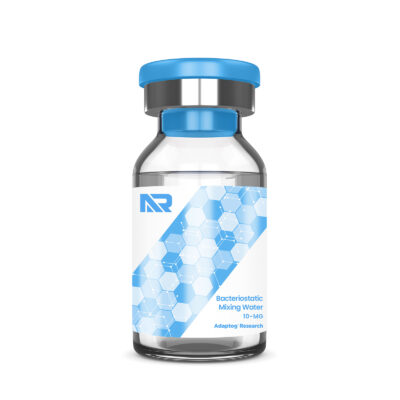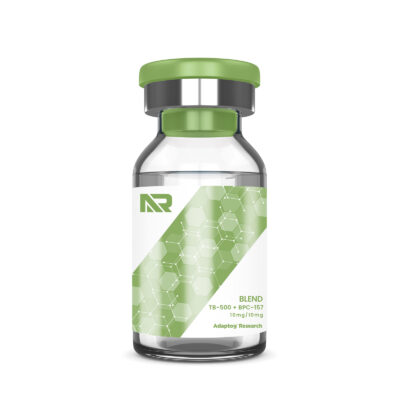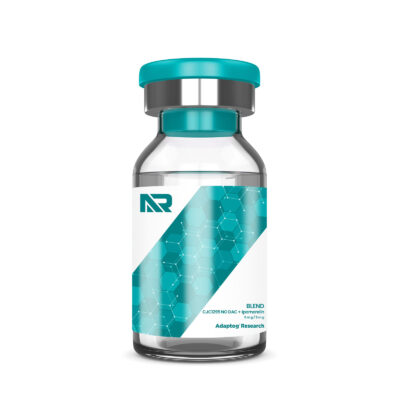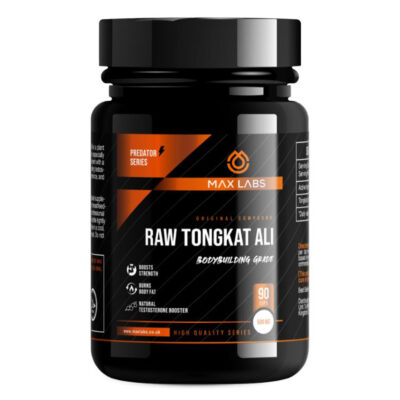Cortisol, commonly known as the stress hormone, plays a vital role in our body’s response to stress. While it is necessary for survival, too much cortisol can harm our overall health, including muscle growth.
When we face stressful situations, our bodies release cortisol to help us cope with the challenges. This hormone increases blood sugar levels, suppresses the immune system, and provides an energy boost to tackle the stressor. However, prolonged or chronic stress can lead to consistently elevated cortisol levels, hindering muscle growth.
Monitoring cortisol levels is especially important for bodybuilders and athletes. Elevated cortisol levels can lead to muscle breakdown and hinder muscle growth. It can also increase the risk of injuries, delay recovery time, and weaken the immune system.
So, how can we mitigate the effects of cortisol on muscle growth?
Understanding Cortisol
Cortisol, a hormone produced by the adrenal glands atop the kidneys, is crucial for regulating various physiological processes. It primarily helps the body respond to stress by increasing blood sugar levels, suppressing the immune system, and regulating metabolism.
The hypothalamus releases corticotropin-releasing hormone (CRH), prompting the pituitary gland to produce adrenocorticotropic hormone (ACTH), which signals the adrenal glands to release cortisol. This process, known as the hypothalamic-pituitary-adrenal (HPA) axis, maintains steady cortisol levels.
Cortisol follows a circadian rhythm, peaking in the morning to wake the body and energize it for the day and declining in the evening to promote relaxation and sleep.
Understanding cortisol’s role in stress response and overall health underscores the importance of stress management in preventing the adverse effects of chronic stress.
Cortisol and Muscle Growth
Muscle growth and protein synthesis involve creating new muscle tissue. Stress or resistance exercises, like weightlifting, cause micro tears in muscle fibres, triggering an inflammatory response and releasing hormones such as insulin-like growth factor-1 (IGF-1) and testosterone.
Protein synthesis uses amino acids from dietary protein or muscle breakdown to build new proteins, repair damaged fibres and promote muscle growth. This process includes transcription, translation, and post-translational modifications.
Cortisol, produced by the adrenal glands, regulates metabolism and stress response. However, elevated cortisol levels can negatively impact muscle protein synthesis due to its catabolic nature, promoting tissue breakdown, including muscle tissue.
High cortisol levels disrupt the balance between anabolic (tissue growth) and catabolic (tissue breakdown) processes, inhibiting protein synthesis and promoting muscle breakdown. Chronic stress, inadequate sleep, overtraining, and nutrient deficiencies can increase cortisol levels, hindering muscle building.
How Cortisol Affects Your Physique
Cortisol and growth hormone (GH) have an intricate relationship within the body. Cortisol is a stress hormone produced by the adrenals, while GH is a peptide hormone secreted by the pituitary gland. Cortisol and GH function together to regulate various physiological processes, including muscle recovery and growth.
1. Stress Can Affect Your Metabolism
Stress significantly impacts metabolism through the release of cortisol, the stress hormone. High cortisol levels can harm metabolism by inhibiting insulin sensitivity, leading to insulin resistance. This slows metabolism, hinders fat burning, and impairs glucose utilisation for energy.
High cortisol also increases appetite and cravings for unhealthy foods, contributing to weight gain and metabolic dysfunction. It promotes visceral fat accumulation, which is linked to higher risks of chronic diseases like diabetes and cardiovascular issues.
Elevated cortisol levels can initially boost energy expenditure, but chronic stress eventually leads to exhaustion and reduced energy expenditure, making losing weight almost impossible.
Managing stress is crucial for metabolic health. Regular exercise reduces stress levels and improves insulin sensitivity. Adequate sleep, balanced nutrition, and stress-reducing activities such as mindfulness meditation and deep breathing exercises also help regulate cortisol levels.
2. Stress Can Lead to Food Binges
Stress often leads to food binges, as individuals crave unhealthy foods under pressure. This is due to cortisol, which increases appetite and triggers cravings for calorie-dense, high-fat foods. Known as “comfort eating,” this behaviour temporarily relieves stress but can negatively impact muscle growth.
Food binges, typically involving excessive calorie intake from unhealthy foods, lead to weight gain, decreased insulin sensitivity, and reduced muscle protein synthesis. These factors hinder proper nutrition and make muscle growth challenging.
Adopt healthy coping mechanisms to manage stress-related eating. Recognize triggers of stress eating and develop strategies to avoid them. Regular physical activity, like exercise or yoga, helps manage stress and reduces the likelihood of turning to food for comfort.
Explore alternative coping mechanisms to avoid food binges. Engage in relaxation techniques, such as deep breathing or meditation, to alleviate stress. Additionally, hobbies, time with loved ones, or seeking support from a therapist or support group can provide healthier ways to cope with stress.
3. Stress Will Affect Recovery Time
Stress can negatively affect muscle growth and recovery, which is crucial for improving strength and performance. The hormone cortisol, released during stress, can prolong recovery time by inhibiting protein synthesis, which is essential for muscle repair and growth.
Prolonged cortisol elevation leads to muscle tissue breakdown rather than repair. Focus on stress management techniques to reduce cortisol and improve recovery. Adequate sleep is vital for cortisol regulation and hormonal balance, while sleep deprivation increases cortisol levels.
Incorporate relaxation techniques like deep breathing, meditation, and yoga to reduce stress and lower cortisol levels. These practices help support better muscle recovery and overall performance.
4. Stress Can Hinder Muscle Growth
Chronic stress negatively impacts muscle hypertrophy, or muscle growth, primarily through increased cortisol levels. When stressed, the body releases cortisol, which inhibits muscle protein synthesis and increases muscle tissue breakdown, hindering muscle growth.
Elevated cortisol levels disrupt protein synthesis, increase fat storage, and promote muscle breakdown, further compromising muscle hypertrophy.
Managing stress is essential for optimising muscle growth. Reducing stress and cortisol levels enhances muscle repair and growth. Effective strategies include stress management techniques such as meditation, deep breathing exercises, and progressive muscle relaxation, which have been shown to lower cortisol levels and promote muscle development.
Causes of Elevated Cortisol
High cortisol levels can be caused by various factors, both external and internal. Factors increasing cortisol include:
- Stress: Prolonged stress leads to elevated cortisol.
- Poor Diet: Diets high in refined sugars and processed foods can increase cortisol.
- Lack of Sleep: Chronic sleep deprivation disrupts cortisol production and regulation.
- Medical Conditions: Excess cortisol from tumours or corticosteroid use and decreased cortisol from chronic stress and overworked adrenal glands.
- Overtraining: Insufficient recovery from intense exercise raises cortisol.
- Stress Management: Lack of techniques like meditation or deep breathing can increase cortisol.
To identify and manage high cortisol triggers, it is essential to monitor stress levels, prioritise sleep and follow a healthy diet. Regular exercise can also help regulate cortisol. Seeking professional help for medical conditions and adopting stress management techniques are key steps towards managing high cortisol levels.
Symptoms of High Cortisol Levels
High cortisol levels, or hypercortisolism (Cushing’s syndrome), can cause various physical and psychological symptoms. Physically, individuals may experience
- Weight gain, particularly in the face, neck, and upper body
- Thinning of the arms and legs
- Muscle weakness
- Easy bruising
- Acne
- Purple stretch marks
- Slow wound healing
Psychologically, excessive cortisol can lead to anxiety, depression, irritability, mood swings, and sleep disturbances such as insomnia or excessive sleepiness. Concentration, memory problems and increased sensitivity to stress may also occur.
Symptoms like unexplained weight gain, persistent fatigue, frequent infections, and worsening anxiety or depression should prompt an investigation into cortisol levels. Regular cortisol checks and consultations with a healthcare provider can help identify imbalances and determine the need for testing.
How to Reduce Your Cortisol Levels
Cortisol, produced by the adrenal glands in response to stress, is essential for our stress response but can harm our health if chronically high. Fortunately, several strategies can help reduce and balance cortisol levels.
Effective stress management is crucial. Getting a good night’s sleep reduces stress, while exercise lowers cortisol, particularly aerobic activities, which helps lower cortisol naturally. Natural remedies, such as adaptogens like Rhodiola rosea, can help manage cortisol levels by helping the body adapt to stress.
Decreasing cortisol through diet is also vital. Avoid excessive caffeine and sugar, which can spike cortisol. Instead, eat a balanced diet rich in whole foods, including fruits, vegetables, and lean proteins. Supplements like ashwagandha and vitamin C can help regulate cortisol.
SARMs (Selective Androgen Receptor Modulators) can also support muscle growth and cortisol management. These compounds are known for their ability to selectively target androgen receptors in muscle tissue, promoting muscle growth without many of the side effects associated with traditional anabolic steroids.
By enhancing muscle growth, SARMs can indirectly help manage cortisol levels by improving overall body composition and reducing the physical stress associated with intense training sessions. This, in turn, can help maintain a balanced hormonal environment conducive to better stress management.Head to UK SARMs to learn more about buying SARMs in the UK and what they can do for your physique. Our commitment to excellence is evident from our UK SARMS reviews.







